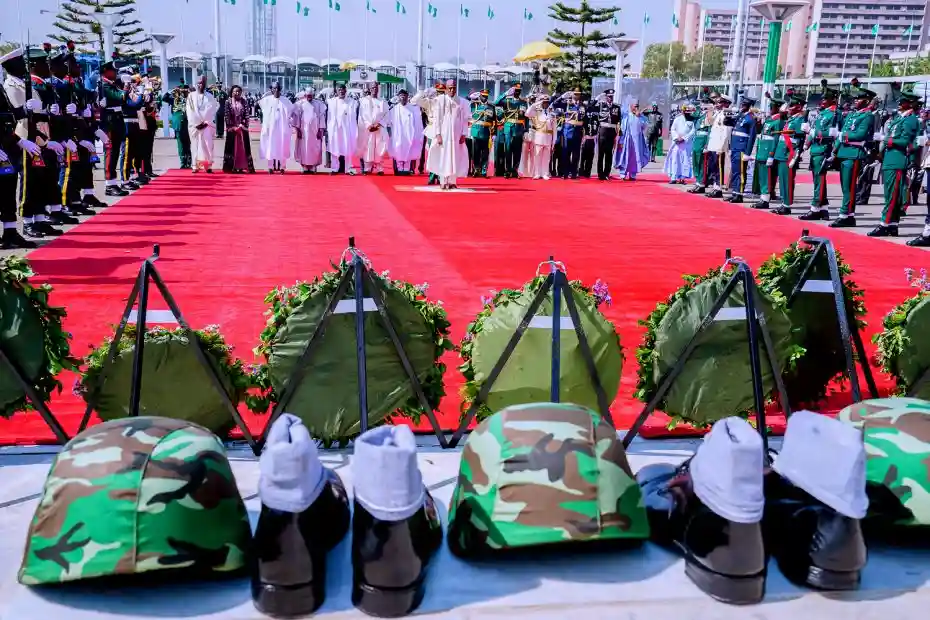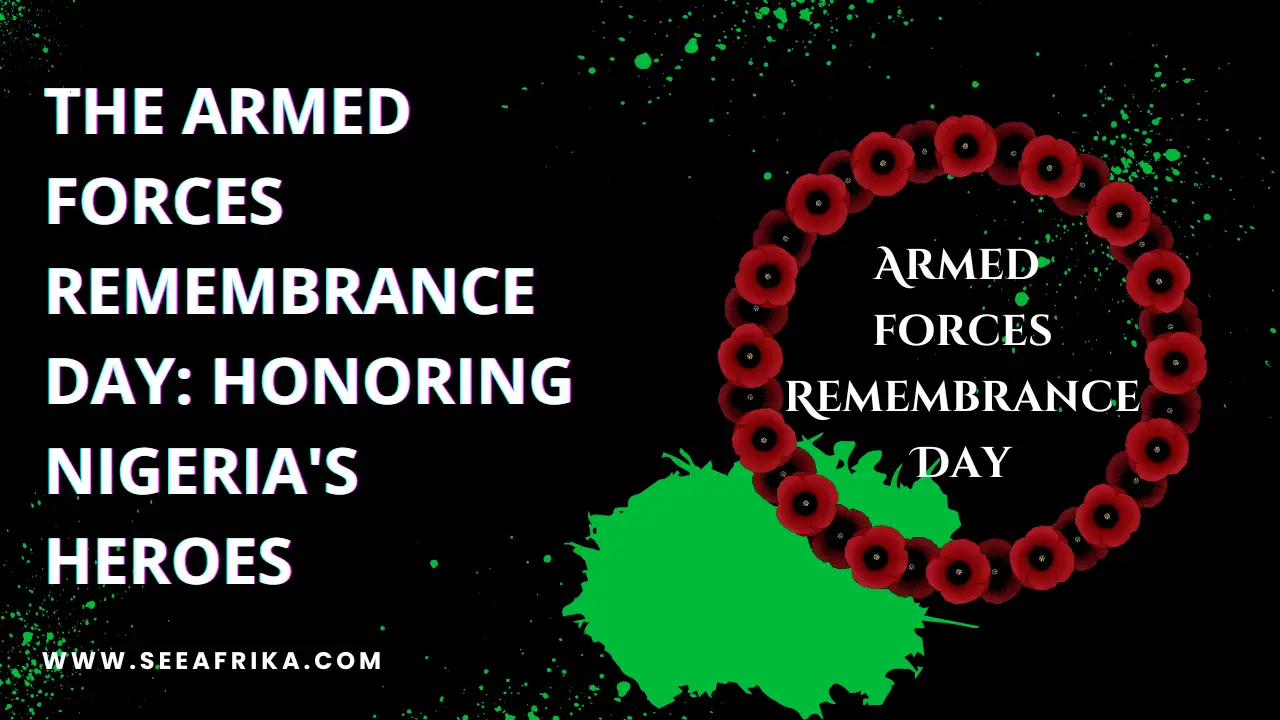Every year on January 15, Nigeria commemorates the Armed Forces Remembrance Day. This solemn event honours the sacrifices of military personnel who have served and continue to serve the nation.

Source: Nigerian Legion Corps of Commissionaires
History Behind the Armed Forces Remembrance Day
The Armed Forces Remembrance Day was initially celebrated on November 11, aligning with the global Remembrance Day for World War veterans. However, Nigeria shifted its date to January 15 to mark the end of the Nigerian Civil War in 1970. This conflict, which threatened the unity of Nigeria, concluded with the surrender of Biafran troops to federal forces on January 15, 1970.
Significance of the Armed Forces Remembrance Day
The Armed Forces Remembrance Day is a call to remember the ultimate sacrifices made by members of the Nigerian Army, Navy, Air Force, and the Nigerian Legion. It serves as a reminder of the price paid for peace and unity in Nigeria.
Preparations for the Armed Forces Remembrance Day begin two months in advance. Key activities include the sale of remembrance emblems, which are worn as a symbol of solidarity and respect for military personnel.
Parades and Wreath-Laying Ceremonies
At the cenotaph of the “unknown soldier,” security chiefs, political figures, Nigerian legion members, and other interested parties assemble annually for a solemn ceremony honouring our valiant war veterans who gave their lives in combat. This solemn ceremony is followed by the release of white pigeons, symbolizing peace and unity.
The phrase “unknown soldier” is used to honour the valiant veterans of war who gave their lives to ensure our country’s peace and unity. Additionally, in memory of the unnamed soldier, customary gun salutes are performed by firing artillery or cannons.
A cenotaph is a solemn memorial that pays honour to people or a collective, even while their bodily remains lay elsewhere. It acts as a powerful sign of remembering and respect. Additionally, it can be the initial grave for a person who has since been buried somewhere else. Commemorative cenotaphs are required since many soldiers who die in combat are buried there. Every state, including the Federal Capital Territory of Abuja, has cenotaphs.
The armed forces emblem, a sign of respect for the unidentified soldier, is unveiled by the federal and state governments before the celebrations. For the families and dependents of fallen combat soldiers, the symbol acts as a means for raising money and donations.
Military churches and mosques across the country hold special prayers to honor fallen heroes. In Abuja, services are conducted at the National Christian Centre and National Mosque.
Also read: China, Nigeria Renew Currency Swap Agreement
Importance of Armed Forces Remembrance Day
The Armed Forces Remembrance Day is crucial for several reasons:
- Honoring Sacrifices: It acknowledges the bravery and sacrifices of military personnel who have fought for Nigeria’s unity and sovereignty.
- Promoting Unity: The day serves as a reminder of the importance of national unity and the need to avoid conflicts that could threaten it.
- Supporting Veterans: The remembrance emblem helps raise funds for the families of fallen soldiers, ensuring they receive the support they deserve.
Also read: Spiro to Boost EV Production in Nigeria with New Plant
Conclusion
The Armed Forces Remembrance Day is a poignant reminder of the sacrifices made by Nigeria’s military heroes. As the nation continues to grow and face new challenges, this day remains a powerful symbol of respect and gratitude for those who have served and continue to serve the country. By honouring their memory, Nigeria reaffirms its commitment to peace and unity.
The Guards Brigade cemetery near Murtala Mohammed Way in Abuja was opened in 2017 as a place to bury active and retired brigade members as part of General Tukur Yusuf Buratai’s desire for all army units to have their unit cemeteries.
The golden jubilee of the conclusion of the war was in 2020. Nigerian Vice President Yemi Osibanjo declared plans to set aside funds to assist the families of dead troops the week before that occasion. On January 15, 1970, the Enugu-based Centre for Memories, which primarily works to preserve Igbo history and culture, debuted a documentary about Armed Forces Remembrance Day: Untold Memories from the Nigeria-Biafra War.
Also read: Strengthening UK-Nigeria Trade Relations: A New Era of Economic Cooperation




